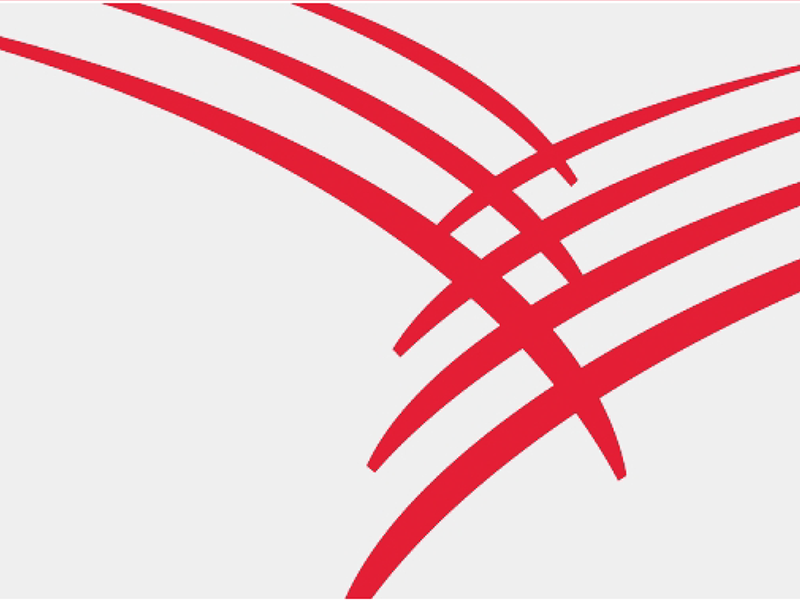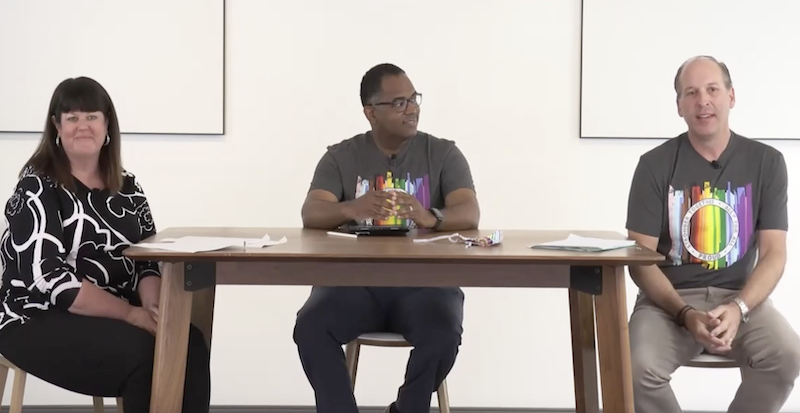 |
Cardinal Health Latest News

06/16/2021
By Steve Mason, CEO of the Medical Segment at Cardinal Health
I recently joined a diverse group of colleagues in a panel discussion about what it means to be an advocate for gender, racial and LGBTQ+ (lesbian, gay, bisexual, transgender, queer and other) equity.
Panel moderator Emily Gallo, vice president of Marketing, Medical Segment and co-chair of our PROUD employee resource group (ERG), set the stage for us. “I’ve been out at work for a long time,” she said. “But, when I’m in a new role or meeting with colleagues who do not know me well, I face a choice to come out every time someone assumes that I have a husband, which often comes up during small talk. That can be uncomfortable. Avoiding making such assumptions is one of the ways that advocates for the LGBTQ+ community can make a difference.”
Getting comfortable being uncomfortable
We know that we can make real progress by supporting those who’ve been marginalized. But for each of us, learning to become an ally and advocate has been a journey. We all come at it from a place of authenticity: We are trying to drive positive change. But we’ve made mistakes, and we’ve had to get comfortable being very uncomfortable.
When I first became an LGBTQ+ ally, I didn’t have the right vocabulary. I asked questions, not even sure if they were the right questions. I got feedback when I was wrong, and I learned. I sought out colleagues who could teach me; I asked questions and I listened. I also found some helpful online resources, including the Human Rights Campaign website and its Glossary of Terms, and The New York Times' ABCs of L.G.B.T.Q.I.A.+, a quick read about identities. (Our company has also put together a lot of educational materials to support employees on their journey from awareness to allyship to advocacy.)
Here are some highlights of our panelists’ journeys.
Ola Snow, Chief Human Resources Officer: When my son came out as a teenager, a lot of people stood up for him, including many of my colleagues. Though I’ve long been an ally and advocate at work, I learned that being an advocate mom is different. My LGBTQ+ colleagues helped me to understand the challenges that my son and our family would likely face, but also the opportunities ahead. A few years later, my daughter came out, and today, every month is Pride Month at our house.
I’m an advocate for working moms, too. The COVID-19 pandemic drove many women out of the workforce. At Cardinal Health, we knew early on that moms were struggling to balance the tremendous load of work, homeschooling and caregiving. We tried to provide flexibility, asking employees to focus on the work to be done (rather than when the work got done) wherever that was possible. We ramped up access to mental health services, and we released a wellness and self-care series focused on COVID-19 and mental health. As a result, Cardinal Health hasn’t seen the spike in women leaving that other companies have experienced.
Being an ally and advocate, at work and at home, doesn’t mean that I want to try to fix things for you. It means that I want to stand with you, work with you. I need to listen and learn. As an advocate, I can use what privilege I have, wherever I can, to make things better.
Eric Joyner, vice president of Revenue Management, Pharmaceutical Segment: As a Black man in America, I often enter into environments feeling like an outsider, as I’m often the only person of color in the room. But it’s amazing how two people who look different usually have had similar life experiences…As soon as you begin talking to one another, the common experiences tend to become more prominent than any differences.
When I joined Cardinal Health in 2019, the tone around racial and LGBTQ+ inequity in this country was really ugly. But here I discovered I didn’t have to hide the stress of living with that. Instead, I could start working with others to try to solve some of the problems around inequity.
Being an advocate is important for all of my family. My wife and I talk with our children, ages 10 and 12, about not just racial equity, but about equity for all. One of our good friends used to identify as she/her, and now identifies as he/him; we talk about his journey. We are his advocates, both because he is black, and because he is part of the LGBTQ+ community.
At work and at home, part of my advocacy is to create a welcoming, supportive environment.
Recognizing privilege
As for me, I have always felt a strong allyship for people who are “other.” I grew up in the inner city in a highly diverse neighborhood. My mom did the best she could to raise three boys – but we struggled. I was one of the kids who got free school lunches. That made me “other,” too.
I certainly never thought of myself as privileged. However, as an adult, I began to understand that simply being a straight White man gives me privilege. I am almost never the “only” in the room, and I would never be fired for the way I look or who I love.
The awareness of my privilege launched my journey to become an ally, then an advocate. I began to look for ways that I could support LGBTQ+ colleagues.
Being an advocate means being visible and speaking out, both inside and outside the company. That’s why I am proud to serve as Executive Sponsor of our PROUD ERG. And it’s why I advocate for passage of the Equality Act, legislation that would protect the LGBTQ+ community from discrimination in the workplace, housing, public accommodations, credit, education and jury service.
Inclusion as a supercharger
I advocate for diverse and inclusive teams, because I want Cardinal Health to be a great place to work – for me and for everyone else. An inclusive culture is a kind of supercharger. It brings more creativity and innovation: Diverse teams find new ways to get things done, and solve problems more quickly, with better results.
To create an inclusive environment where every employee can bring 100% of themselves to work every day, we have to stand together. That’s what prompted me to ask, in 2019, “What would it take for us to get 5,000 visible, educated and active LGBTQ+ allies, standing together across the company?” THAT would be a supercharger.
At the time, we had fewer than 1,000 members in our PROUD ERG. But we started promoting the power of allyship. We asked employees to complete allyship training, and to sign an Ally Pledge committing to walking alongside our LGBTQ+ colleagues.
Today, about 3,800 employees have signed this pledge, and we’re on track to reach our goal of 5,000. Together, we learn and we make progress.
As we celebrate this Pride Month, I hope you’ll join me in continuing to learn. And I hope you’ll join me and my thousands of colleagues, standing together as allies and advocates.
Steve Mason is the CEO of Cardinal Health’s Medical Segment – a global provider of medical products and supply chain services across the health care continuum from hospitals to laboratories, physician offices, surgery centers and patients in the home. He has more than 20 years of experience in leadership roles across Cardinal Health’s Medical and Pharmaceutical Segments.
